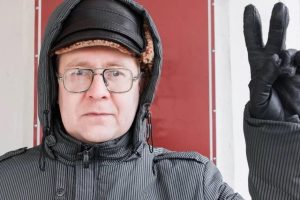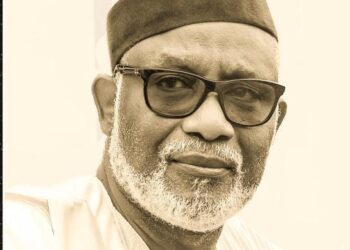
LONDON, March 22 (Reuters) – A Moscow military court has sentenced a Russian poet to seven years in prison for verses questioning the morality of Russia’s war in Ukraine, according to a letter he wrote to a Russian activist.
A notice on the court’s website showed Alexander Byvshev was convicted on Tuesday of “public calls for terrorism” and spreading “military fakes”, laws used widely in the past two years against Russians who speak out against the war in Ukraine.
The court notice did not provide the length of his sentence but Byvshev said in a letter to Anastasiya Shevchenko, a Russian activist now living in Lithuania, that he had received a seven-year term.
He also wrote in the letter, reviewed by Reuters, that his conviction stemmed from a poem he published a few weeks after Russia’s 2022 invasion of Ukraine and a video he shared online showing damage to a Kyiv suburb where his aunt was born.
The quatrain “To Russian officers or a rhetorical question” begins with the line: “Rockets are being fired at Ukraine”.
It ends with an appeal to Russia’s military to find its “Stauffenberg” – a reference to Adolf Hitler’s would-be assassin which he said in the letter may have been interpreted as “an incitement to carry out a conspiracy against the President of Russia, V.V. Putin”
“Thus, the authorities decided to finally shut me up”, Byvshev wrote.
The Soviet Union, and the Russian Empire before it, had a long history of repressing writers, who often doubled as dissidents.
Poet Alexander Pushkin was exiled by Tsar Alexander I for his poem “Ode to Liberty”. Soviet Jewish writer Joseph Brodsky fled to the United States in the 1970s.
Three Russian poets were arrested in September 2022 for reciting verses in a Moscow square condemning the Ukraine war, and received prison sentences ranging from four to seven years.
A resident of Kromy, a small town 400 km (250 miles) southwest of Moscow, Byvshev has been publishing anti-war poetry for at least a decade, according to an advocacy group for Russian political prisoners.
After losing his job as a German language schoolteacher, he had at least six criminal cases brought against him before his most recent arrest in February 2023.
In a 2018 interview, Byvshev warned of turbulence to come in Russia, paraphrasing Soviet dissident writer Alexander Solzhenitsyn: “The clock of communism has stopped striking, but let us not be crushed under its rubble.”



